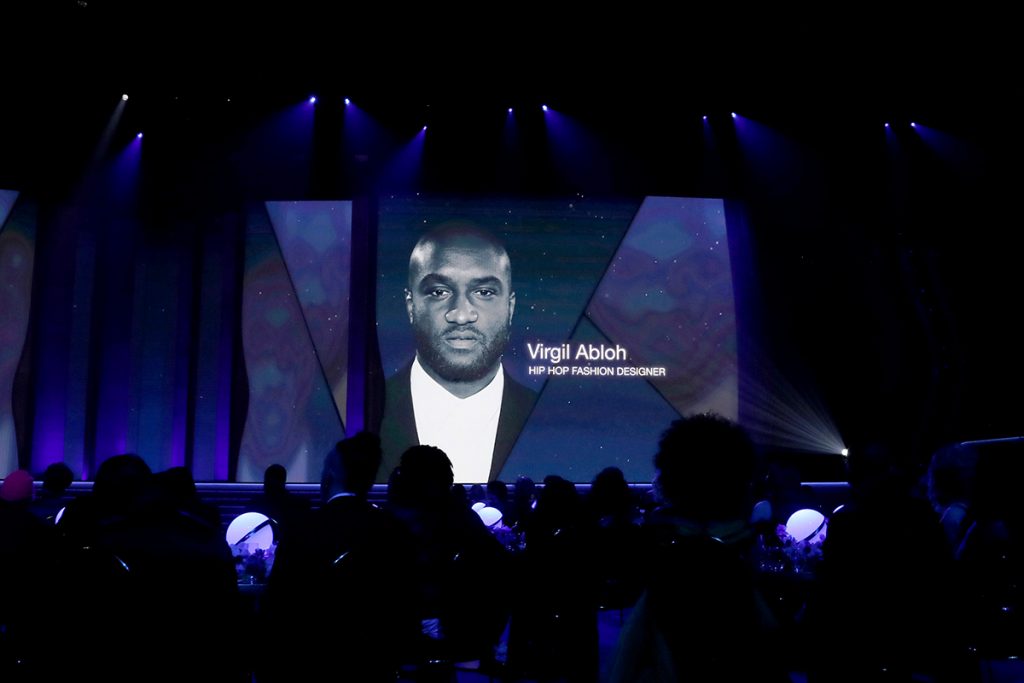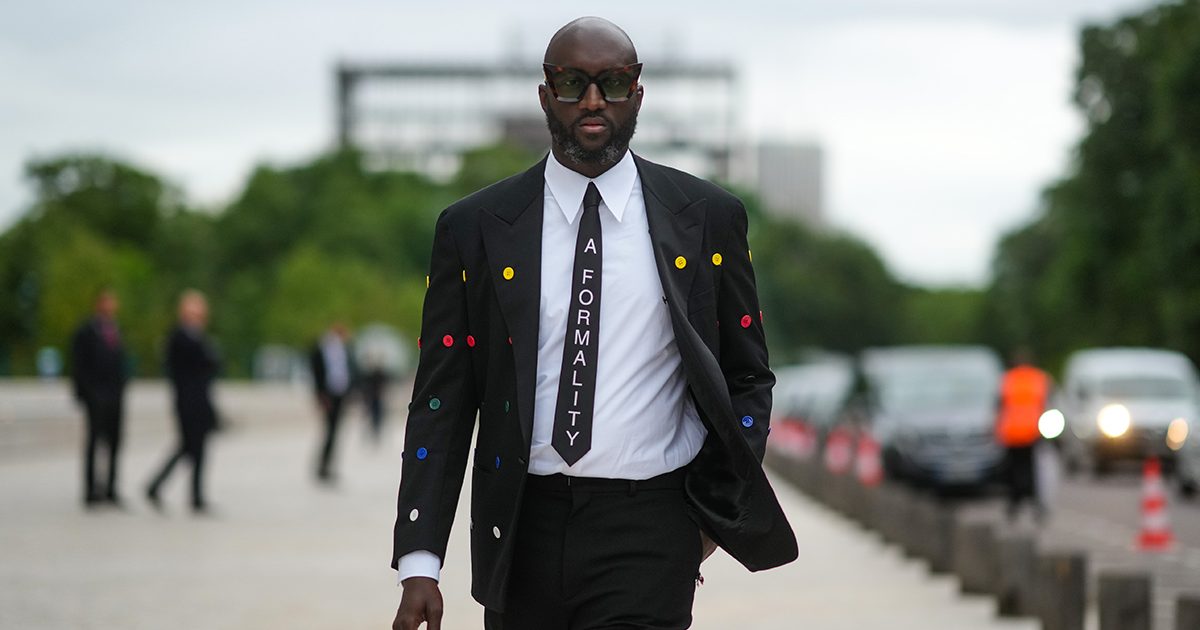Understanding Cardiac Angiosarcoma
- Fans of Virgil Abloh bashed Grammy producers on social media for their tribute to the late fashion designer, who died from a rare form of cancer, during the awards show last weekend.
- The tribute triggered fans, who called Grammy producers "ignorant" for calling him a hip-hop fashion designer. Some even called the tribute "micro-aggressive racism."
- Cardiac angiosarcoma is a rare type of soft tissue sarcoma found in the heart. Symptoms can include blockage of blood flow to the heart and an irregular heartbeat.
Displayed on screen above the audience, a photo of Abloh beamed down with the words "hip hop fashion designer." Those four words were what triggered fans, who called Grammy producers "ignorant" for calling him such. Some even called the tribute "micro-aggressive racism."
Read More
"They could've said 'iconic' or something or just 'fashion designer,'" they added. "Somebody purposefully kept it in. None of these moments are accidents."
A third person tweeted: "Calling Virgil Abloh a 'Hip-Hop Fashion Designer' is insanely disrespectful and blindly ignorant… do better."

Understanding Cardiac Angiosarcoma
Cardiac angiosarcoma is a rare type of soft tissue sarcoma found in the heart. Symptoms can include blockage of blood flow to the heart and an irregular heartbeat. The symptoms of this disease vary depending on where the tumor is located.
Virgil Abloh handled his cancer battle privately from the time of his 2019 diagnosis. His family spoke out after his death saying he underwent "numerous challenging treatments, all while helming several significant institutions that span fashion, art, and culture."
Treatments for cardiac angiosarcoma include surgery, radiotherapy and chemotherapy. Due to the rare nature of this type of cancer, treatment guidelines are not yet established.
How to Find Help After a Rare Cancer Diagnosis
Tens of thousands of people, like Virgil Abloh, are diagnosed with rare types of cancer every year.
People facing an uncommon diagnosis may find it difficult to find a doctor who specializes in their illness. SurvivorNet experts have specific guidance on ways that rare cancer patients can find helpful resources and take the initiative to get the help they need.
Here are some ways to find help:
Clinical Trials
Many SurvivorNet experts say that once they've exhausted all other options for treating their patients' cancer, or if they have a rare cancer, they'll recommend looking into clinical trials. How can you find active clinical trials that may be right for you? Check out clinicaltrials.gov.
Clinical Trials Can be Life-Saving for Some
This website is a database that the United States government maintains. It compiles privately and publicly funded clinical trials conducted around the world. It can be a particularly useful resource for cancer patients with rare conditions as a tool for finding doctors who are experts on their diseases.
Oftentimes, the most specialized doctors in a specific field end up leading clinical trials that push our understanding of diseases forward. If you know what the name of your disease is, you can search the disease name on clinicaltrials.gov and find the names of doctors leading these kinds of studies. This tool can help you identify the doctors who are best qualified to help you.
Academic Centers & Comprehensive Care Centers
For many cancer warriors, community oncology can be a great treatment resource. However, people with rare cancer might require specialized evaluation. Most of the time, the most effective place to find a specialist is at academic centers and comprehensive care centers.
Seeking Care at a Comprehensive Cancer Center
"A comprehensive cancer center is a cancer center that has been essentially vetted by the National Cancer Institute, and provides outstanding clinical care in addition to basic and translational science and research," Dr. Ted Teknos, president at University Hospitals Seidman Cancer Center in Cleveland, Ohio, previously told SurvivorNet.
Across the U.S., there are only about 50 accredited comprehensive cancer centers. There are also various cancer cancers. (The difference between the two is that an NCI-designated cancer center means a center has met NCI standards for cancer prevention, clinical services or research, but not all three. If a facility is an NCI-designated comprehensive cancer center, that means it meets NCI standards in all three categories.)
Dr. Kenneth Miller, a clinical instructor at Mount Sinai, previously told SurvivorNet about what differentiates a comprehensive cancer center from other treatment providers, like community medicine.
"Pretty much automatically, there's going to be a team approach (to your care)," Dr. Miller said. "Surgical oncology, medical oncology, radiation oncology and all the support services and also wonderful pathology and radiology." Dr. Miller explains that at a comprehensive cancer center, all of these different specialists work together to help you find the best treatment.
"We call it a tumor board a group to go through all the details of your case … so you get a group of very smart people coming up with a plan together that is hopefully optimal and gives you the best chance of doing well."
Contributing: Joe Kerwin
Learn more about SurvivorNet's rigorous medical review process.

